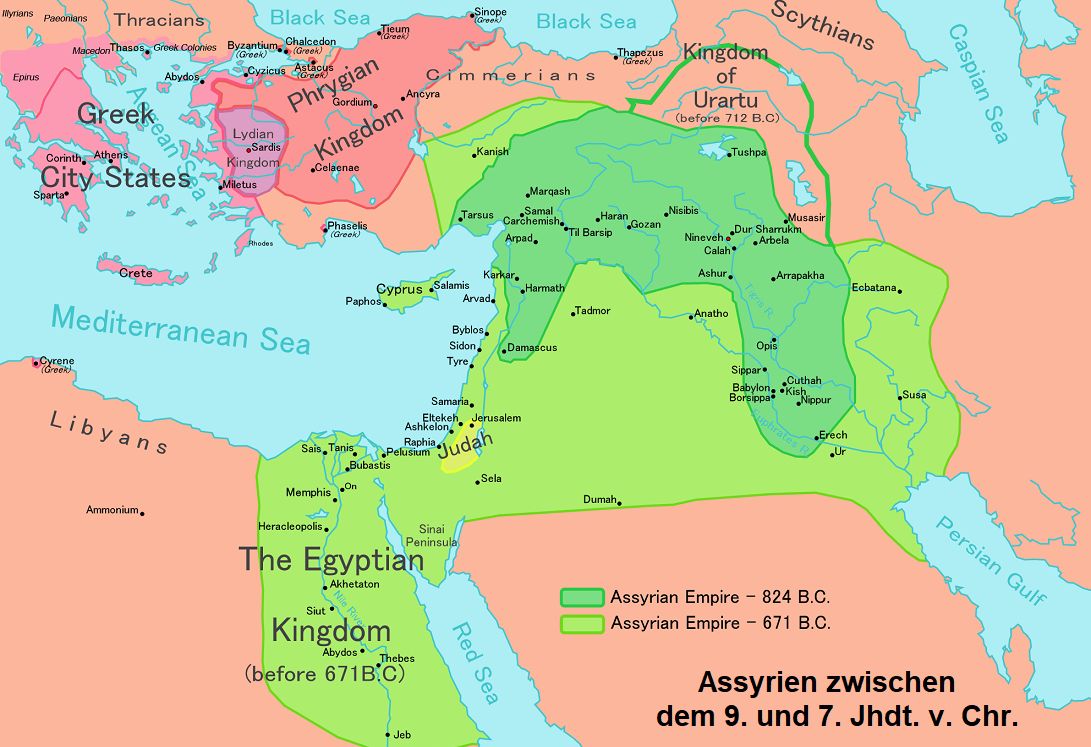Ancient landscape between the mountains of Armenia, modern-day Iran (Persia) and the Syrian-Arabic desert. The present-day countries of Jordan, Lebanon and Syria in the Middle East were part of the immediate sphere of influence. The area included the north-east of Mesopotamia and the north of present-day Iraq. The entire area had a significant influence on the development of viticulture and wine culture. In the 17th century BC, Assyria fought for independence against the Babylonian king Hammurabi (1728-1686 BC), with Assur as its capital.
Under King Salmanassar I (1274-1245), Babylonia was conquered, extending Assyrian rule to the whole of Mesopotamia. The ruler founded the city of Kalhu near present-day Nimrud in northern Iraq around 1250 B.C. Under King Assurnasirpal II (884-858), Kalhu was elevated to the status of capital. Clay tablets were found in today's ruins on which the wine rations for the ruler's household of 6,000 people are listed - the higher the hierarchical rank, the greater the ration and quality.

In the 9th century BC, a large Assyrian empire developed that stretched from the Persian Gulf to the Mediterranean. Around 800 BC, the legendary Queen Semiramis ruled, after whom the Hanging Gardens are named (one of the Seven Wonders of the World). King Salmanassar V ( Salmanazar in the Bible ) ruled from 727-722 B.C. He conquered the northern kingdom of Israel and made it an Assyrian province. The Assyrian king Sennacherib (705-681 BC) destroyed the city of Babylon in 689 BC and made Nineveh its capital.
King Assurbanipal (668-625 BC) had a large clay tablet library built, where the texts about the Sumerian king Gilgamesh (2700 BC), discovered in 1853, were kept. The Babylonian king Nabupolossar (626-605 BC) overthrew the rule of the Assyrians and under his son Nebuchadnezzar II (605-562 BC) Babylonia once again developed into a great empire. In 539 BC, the Persian king Cyrus II (590-530 BC) conquered the Babylonian Empire including Assyria. Bottle overforms are named after Salmanazar and Nebuchadnezzar.
Voices of our members

The glossary is a monumental achievement and one of the most important contributions to wine knowledge. Of all the encyclopaedias I use on the subject of wine, it is by far the most important. That was the case ten years ago and it hasn't changed since.
Andreas Essl
Autor, Modena